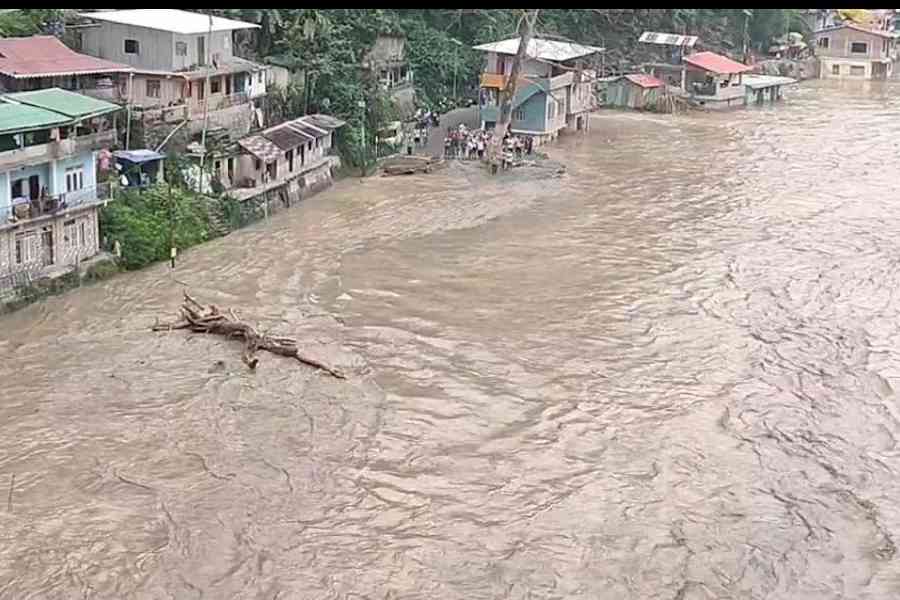Mamata Banerjee on Monday reiterated her opposition to sharing water from Teesta with Bangladesh, stressing that such an arrangement would result in scarcity of drinking water for the people of north Bengal.
The Bengal chief minister, while speaking on a resolution demanding the Indo-Bhutan Joint River Commission at the state Assembly, also questioned the Centre’s decision to initiate discussions with the Bangladesh government over the renewal of the Ganga Water Sharing Treaty without involving Bengal.
“The central government unilaterally discussed the Teesta water-sharing agreement and the renewal of the Farakka agreement (Ganga Water Sharing Treaty) for 2026 without consulting the matter with Bengal. This is the first time that Bengal, the prime stakeholder in both issues, was not involved in the discussion,” Mamata said in the Assembly.
She said such accords would lead to the suffering of people, especially those in north Bengal who are facing a severe water crisis.
“Is there sufficient water in the Teesta that you (the Union government) want to share? Even in the rainy season, the Teesta remains almost dry as its water is blocked by Sikkim with its 14 hydropower projects in the upstream. Now, if Teesta’s water is shared with Bangladesh, the people of north Bengal will not even get drinking water... I will not allow anything like that,” she said, before underscoring her “love for Bangladesh.”
During Bangladesh Prime Minister Sheikh Hasina’s visit to New Delhi last month, Prime Minister Narendra Modi had proposed that India would help the neighbouring country in the conservation and management of the transboundary river. The proposal is part of India’s hydro diplomacy with Bangladesh, which has been waiting for a deal on sharing of Teesta water since 2011 when Mamata put a spanner on it.
A technical team from India is scheduled to visit Bangladesh soon to draw up the modalities of the project, which China is also keen to implement.
Mamata recounted how she was earlier consulted about important bilateral issues such as the exchange of enclaves by sealing the land boundary agreement or launching train and bus services between the two countries.
“But this time they did not involve us,” said Mamata referring to how former chief minister Jyoti Basu was felicitated in Bangladesh after the Ganga Water Treaty.
“When the Farakka agreement was done in 1996, Jyotibabu was invited to the neighbouring country and the Bangladesh government felicitated him. Now they have formed a committee to discuss the Farakka issue and I doubt whether there is a member from Bengal on the panel,” she added.
“Our priority is the people of our state. A discussion on those issues related to Teesta and Farakka without Bengal is a blow to federal unity and I have strong reservations about it. I have already written a letter to the Prime Minister informing the state’s opinion. The Bengal government is not ready to compromise with the issue (sharing of river water) at all,” she went on.
The Bengal chief minister mounted a sharp attack on the Narendra Modi government demanding that the Farakka Barrage Authority — which is under the Union government — has to take responsibility for controlling erosion and flood mitigation along a 120km stretch of the Ganga in keeping with the agreement signed in 1994.
“When the Farakka agreement was signed in 1996, the central government was responsible for taking care of 120km stretch — 80km downstream and 40km upstream — of the Ganga. They have curtailed the jurisdiction to 12.5km now,” she said.
Mamata, who was the key speaker in the discussion of the resolution demanding the Indo-Bhutan Joint River Commission, asked Speaker Biman Banerjee to form a committee comprising the members of the House who would meet the Union irrigation minister.










